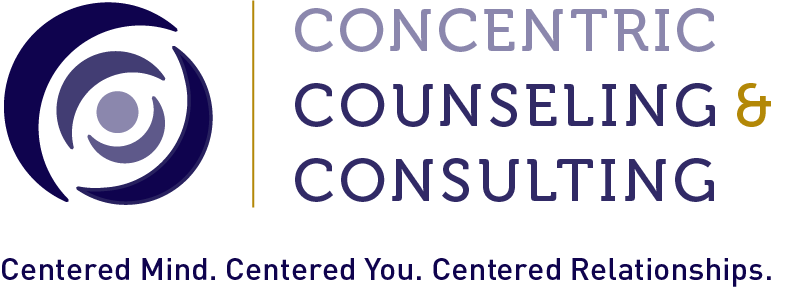By Concentric Counselor Stacey Kiran, LSW
This blog post goes out to anyone who has said to themselves recently, “I really need a break.” or “I have no time to relax!” I am here to tell you – Your time has come! Huzzah! I am going to provide all readers with a Relax and Self-Care Mandate. My purpose for this mandate stems from learning the importance of self-care in graduate school. During grad school, students are told to 'take care of yourself' so often, it felt like a mandate. And I often found myself thinking, “I wish someone would have forced me to take care of myself before grad school, I could’ve used it then, too!”
Are you feeling burnt out from the grind of work and life? Noticing negative effects of this routine in your personal or even work relationships? Do you feel you are missing out on some understanding of your your family or friends' experiences? If you answered yes, you may be experiencing empathy-deficit for others. Also known as compassion fatigue in the field of counseling and therapy.
Maybe you will need to first ask yourself “Is empathy important to my relationships?” If that is a question that is hard for you to answer, I am going to point you to the Queen of Empathy, Dr. Brene Brown. She has a short, fun cartoon for you to watch on the importance of empathy, check it out here.
The article Self Care as an Ethical Imperative offers the story of a person sawing down a tree with a dull saw. Try to tell that person to take a moment to sharpen their knife and they say “I don’t have time to sharpen it! I am too busy sawing!” Well, you can easily imagine using a dull saw will wear on that person, making that person feel depleted and disconnected. This same story applies to many people. I am sure you may feel like you are a personal or professional lumberjack in your life. For example, caregivers (including therapists) are in the role of taking care of others, but may feel too busy to take of oneself. Or people who are not necessarily in the helping role, but who go through the daily grind may feel there is not enough time to nourish oneself.
So, I ask you, "How's your saw?" Finding yourself too busy or depleted to pause and sharpen your saw? In graduate school, I was taught the role of a therapist needs to take time for self-nourishment. If you don't take care of yourself, you can't responsibly help others. Relax and Self-Care Mandate.
Then from Mandate to Practice. Let me get to the point here - I am talking about moving away from a Mandate to a Practice. It’s not like I never heard the term Self-Care before grad school. But, in grad school, the phrase Self-Care began to mean something much more to me than “Go to an exercise class.” It meant ask yourself, "Am I feeling okay?" "What is my body telling me I need?" And, be honest. Because if you are not feeling okay and you ignore it, you could burn out at work or at home or burn the candle at both ends. What is the cost of you continuing your life while still burnt out? The cost is the energy you could be curating and nurturing that can go in to a better tomorrow, a better you, and better relationships.
Many people reach out to therapy to improve themselves and their relationships. If you want to better your relationships– start by relaxing. Sounds counterintuitive? Well, like non-nourished therapists who cannot responsibly help their clients, can you take care of your loved ones if you are depleted? Be fully present? Can you be empathetic towards the people you care about?
In grad school, I kept finding myself think I want empathy in my personal life, not just my professional. I want to be present in my personal relationships. I want my loved ones to present to me! Why should this only be taught to grad students in the field of social work or counseling? Or to therapists? It shouldn't be reserved for a select few.
So, I want to pass along this important information by first giving you a Relax and Self-Care Mandate. Followed by a simple, but yet effective step-by-step guide to help you move into Relax and Self-Care Practice.
Ask yourself, “How do I feel?” – You can ask yourself this question at anytime: every morning, or when you notice yourself doing something you don’t particularly like (i.e. eating an entire large pizza), or when you are doing something or know you will soon be doing something that is stressful (visiting family, perhaps). And this is a good one, if you find yourself fighting against something that usually helps you (i.e. listening to music when sad or going to yoga after work – be aware of those feelings! Listen to them!)
Listen to yourself. Closely. Carefully. With compassion and non-judgment. Judging yourself will only prolong your path to feeling good or better. (Hint – You can tell that your Critic is speaking in this part of the Practice if you feel small. Your truest, most helpful answers here will always make you feel more open, not smaller.)
Ask yourself, “What do I need?” – non-judging is the name of the game. And dare to dream! You can also pose the question “What is standing in my way of feeling however you want to feel. (This is a concept from the book I recommend, Focusing by Eugene Gendlin, Ph.D.).
If you can’t hear the answer, then close your eyes. Often when I cannot hear an answer, I just need a break to think about it and to listen, carefully. Think about it. If you can’t hear an answer about what you need for yourself, then chances are that you can’t hear others’ needs. And, you can't be as present in life. So take a break until you can get an answer.
Follow through. Your answer appears to you, and now you need to connect, commit and follow through. For instance you find yourself wanting or needing a break or vacation. Let's say you have no PTO. Find a way to give yourself the break, even if it's taking an afternoon off.
And, in closing, I want to remind you – when things get shaken up (could be due to a stressful life event, positive transition, recurrent memories, trouble in relationships), our Relax and Self-Care Practice may need to begin to include the use of a professional therapist. I invite you to utilize the tools and guide I have learned for my own Relax and Self-Care Practice. Following your internal instincts of what you need is not just good Self-Care, it is, ultimately, being true to yourself, which may feel foreign in a life of meeting others’ expectations.
It is possible to follow your own voice, meet your own needs, and be true to yourself in a life of others’ needs. And, if you have children, loved ones, or employees looking to you for example or direction, you may model to those little ones, loved ones, or employees that it is OK and appropriate for them, too, to take care of themselves. So, get out there and sharpen your knife. Engage in your Relax and Self-Care Practice. And, start enjoying your life!


